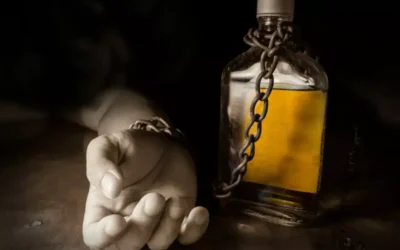For example, if your child is easily pressured to take things that don’t belong to them, they might one day agree to experiment with drugs and alcohol. Unfortunately, chemical dependency becomes addictive after repeated use. Pressure is a normal, challenging part of life for everyone. Adolescence is a time when peer pressure, in particular, may seem the hardest to deal with.
What you need to know about vaping and peer pressure – BBC
What you need to know about vaping and peer pressure.
Posted: Wed, 20 Sep 2023 20:03:50 GMT [source]
Drugs, tobacco, alcohol, and partying
- It’s possible that a friend who is peer pressuring you simply wants to spend more time with you or connect with you, but they don’t know how else to ask.
- You’ll probably develop close friendships with some of your peers, and you may feel so connected to them that they are like an extended family.
- Peers can pressure kids to sneak out of the house, cut school, drive without a license (or ride with an underage driver), steal, vandalize property, and cheat.
- If you have questions or concerns about your child’s mood, self-esteem or behavior, consider a consultation with a trained and qualified mental health professional.
- Being there for teens when they are faced with the challenges of peer pressure can make all the difference.
Find out what peer pressure is and how to handle it, including what to do if things get serious. Seeking support from trusted adults is like having a safety net when facing peer pressure, ensuring you’re not alone in making choices. Having self-esteem and confidence can make it easier to say “no” to negative peer pressure because you believe in yourself and your choices. Social life at school can be difficult at the best of times, but even more so if you’re struggling to make friends in the first place – here are some tips to help. When it comes to pressures around alcohol and other drug use, something else to think about is that most students overestimate how many of their peers drink or use drugs.
Talk to a Trusted Adult if They Feel Pressured

It’s important to note that it’s normal to feel left out or lonely once in a while, but you can help your child realize he has some control over his own behavior and responses. Positive peer pressure is when someone’s peers influence them to do something positive or growth building. You can help your teenager to be a positive peer influence on their friends. Teaching communication skills to students, particularly assertive communication skills, is a useful strategy to help them stand up to bullying. Giving students the opportunity to reflect on their values and beliefs around communication is a good starting point for dealing with peer pressure. This means that pressure to commit small wrongs can lead to more serious bad behavior.
How Peer Pressure Affects All Ages
Your friends may follow if you have the courage to do something different or refuse to go along with the group. Consider yourself a leader, and know that you have the potential to make a difference. Your choice of friends can significantly impact how you handle peer pressure. Surround yourself with friends who share your values and encourage you to be your best self. Positive influences can provide the support you need to resist negative pressures. If your teens don’t have quite enough confidence to walk away on their own, encourage them to look for a like-minded peer or friend who feels the same way they do in a particular situation.
- No matter your age, you can practice not giving in to negative peer pressure and work on surrounding yourself with more positive influences.
- The desire to fit in and feel like you are part of a group is normal, and most people feel this way sometimes, especially in the teen and young adult years.
- Children who have friends whose families share your values are more likely to resist negative peer pressure.
- According to the analysis, 57.8% of students in grades 6-8 get fewer than 9 hours of sleep, while 72.7% of students in grades 9-12 get fewer than 8 hours of sleep.
- This can be distressing if your formerly sweet kid is rolling her eyes at you and responding with, “Whatevs” to everything you say.
Develop Effective Communication Skills
It’s a combination that lets them resist succumbing to peer pressure and have the strength to walk away. They will know that even if they “fail” among their peers, they will succeed in the long run. If your child has ongoing difficulties with peer pressure, talk to his or her teacher, principal, school counselor or family doctor. If you have questions or concerns about your child’s mood, self-esteem or behavior, consider a consultation with a trained and qualified mental health professional. Your friends — your peers — are people your age or close to it who have experiences and interests similar to yours.
- There are several different types of peer pressure that kids and adolescents may experience.
- Give your child a special code word to say or text you if they can’t get out of a situation on their own.
- Or it may mean deciding to take a stand that makes you look uncool to your group.
- Your friends may follow if you have the courage to do something different or refuse to go along with the group.
If they pressure you to do shots with them at the bar when you aren’t drinking, for example, you might suggest that you both hit the dance floor instead. Or maybe, you make a plan to go on a hike or to the movies the next time you hang out. That way, you’re fulfilling both of your needs which of the following is a type of indirect peer pressure? in a mutually beneficial way. Peer pressure causes people to do things they would not otherwise do with the hope of fitting in or being noticed. Schoolwork can be overwhelming, particularly when more than one project is due or multiple tests are scheduled within the same time frame.
But as children age, parents’ influence decreases and the opinion of peers becomes more and more important. Social pressure can affect a wide range of thoughts, actions and behaviors, from academic performance to substance use to mental health. As teenagers, it’s normal for students to want to have friends and fit in with a group. However, sometimes when trying to fit in, they give in to peer pressure and find themselves doing things they don’t feel comfortable doing. Use this lesson to start the conversation with students about peer pressure.

As you go through school, it’s important to consider which behaviours match your values, and stand your ground if you feel pressurised to behave differently. Being true to yourself means sticking up for what you believe in. If you feel you need help with navigating situations like these, make sure you get some support.